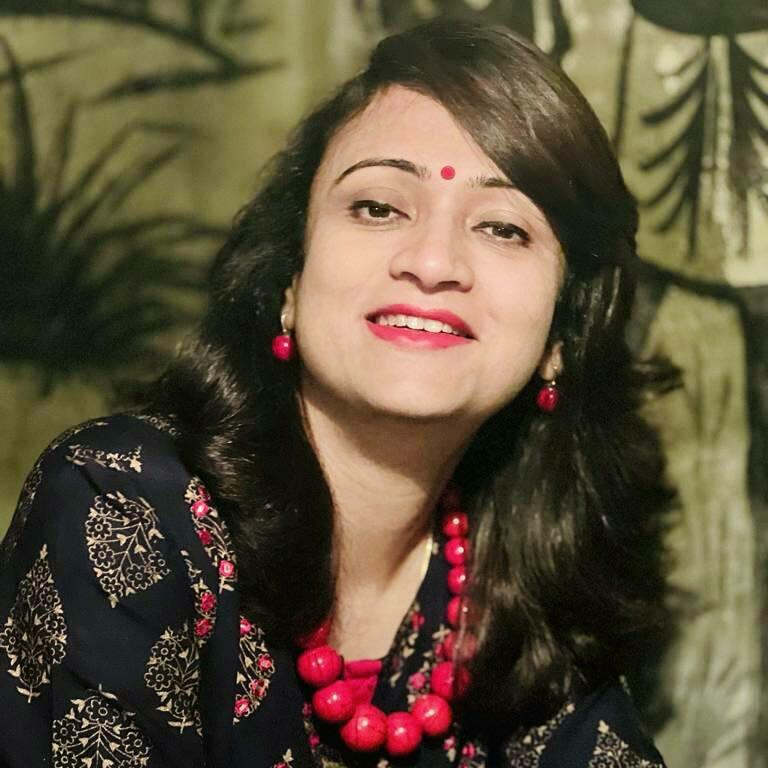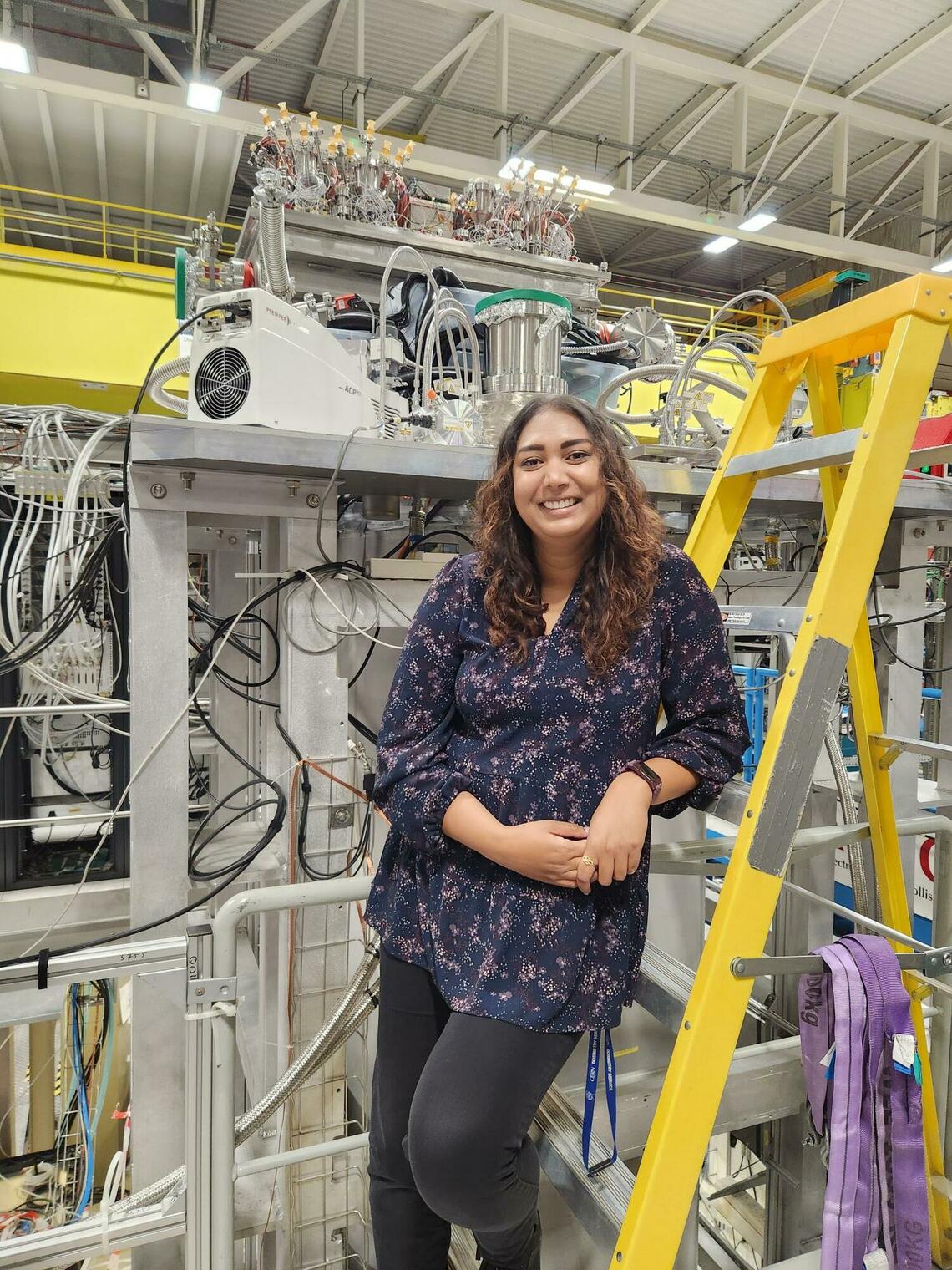
Urbasi Sinha
Urbasi Sinha
Feb. 13, 2024

Are you intrigued by the possibilities of quantum science? For many, the concept of quantum mechanics might seem like something out of a science fiction movie, but quantum research is actively unfolding at the University of Calgary, shaping our daily lives in remarkable ways.
To help us understand the intricacies of quantum science, UCalgary is excited to welcome Dr. Urbasi Sinha, PhD, to UCalgary for Creating Tomorrow | Quantum Research: Transforming the Future on Feb. 21. Sinha is a globally renowned quantum scientist whose TEDx-style presentation promises to explore the complexities of quantum and its application in our daily lives.

Urbasi Sinha
Urbasi Sinha
As a professor at the Raman Research Institute in Bangalore, India, Sinha's research focuses on photons — those tiny, massless particles of light. In her lab, photons are created, manipulated and entangled to conduct precise experiments in quantum mechanics and quantum technologies.
More than 95 per cent of the universe is not known to us. Scientists call this dark matter and dark energy.
“Precision tests are thus very important so that at least we can precisely understand what we do claim to know,” says Sinha. “This, in turn, helps create better technologies for the future.”
Sinha also works in quantum communications, security, computing and imaging. While continuing her work in India, she is set to be associated with UCalgary as a professor in the Faculty of Science and the Canada Excellence Research Chair (CERC) in Photonic Quantum Science and Technologies. Her work at UCalgary will create test beds for quantum computing and communication.
Quantum science, despite its often-mysterious reputation, is already a part of our lives. “There are companies which are selling products on quantum security. There are certain banking services which are bringing in a quantum security element into their applications,” says Sinha. “We also have a quantum random number chip in Samsung cellphones in Korea. It's quite real.”
From IBM to Google, companies are already investing heavily in quantum technologies. Even industries not focused on quantum are looking to harness its potential. “Imagine quantum-enhanced sensors in our cars or quantum algorithms optimizing aircraft liftoff,” says Sinha.

Urbasi Sinha works with quantum equipment in her lab in India.
Urbasi Sinha
Sinha’s research involves complex systems called “qudit” that she says reduce complexity and increase efficiency, compared to binary “qubit” systems that are used in current-day quantum processors. Sinha explains using a mathematical analogy: a three-qubit system uses three two-level systems, while a two qutrit system uses two three-level systems. This means that qudits (defined as systems with more than two levels in quantum superposition) achieve similar computational complexity to qubits, but with fewer systems and improved efficiency.
Qudits also promise lower error rates and eavesdropping risks, according to theoretical studies. You don’t need to be a scientist to understand that practical applications of this could revolutionize sectors from banking to communication.
At the upcoming Creating Tomorrow event, Sinha will deliver a keynote presentation, hoping to leave the audience with the message that quantum technologies have a promising future. She says she looks forward to fostering a curiosity in the audience to explore the quantum world further.
“This is a future-focused event. So, we need to ensure that we leave the audience with the impression that there is a tomorrow to look forward to for quantum,” says Sinha. “The idea would be to ensure that people go away with the message that quantum is useful for them in some one way or another. There's a lot to do in the future, so far as quantum technologies is concerned.”
Also sharing this enthusiasm for Creating Tomorrow is panellist Pooja Woosaree, a UCalgary doctoral student studying quantum science, focusing on the symmetries between matter and antimatter.
“The quantum world is very diverse in terms of what we're researching,” says Woosaree. “I think it's very cool for everyone to get together in one room collectively and understand all the different branches of quantum science and how they can all play together or interact.”

Pooja Woosaree
Pooja Woosaree
Quantum may seem confusing at first, but Woosaree affirms that anyone can learn about quantum science. Since 2019, she has worked with UCalgary researchers Dr. Rob Thompson, PhD, and Dr. Timothy Friesen, MSc’07, PhD’14, on a collaborative project with the European Organization for Nuclear Research (CERN), focusing on antihydrogen, the antimatter counterpart to hydrogen.
“We explore the fundamental symmetries between matter and antimatter, and my work in particular was to look at the gravity of antihydrogen,” says Woosaree. “We created thousands of atoms at CERN and, using a tracking detector that I helped commission, we were able to trap antihydrogen and let it fall and observe which direction it fell in."
Anyone can look into quantum, says Woosaree: “It sounds intimidating. It sounds like you have to be a genius to understand it. I kind of thought the same until I was actually doing it and I'm like, ‘Wait a minute. I can. I can do this.’ I think anyone can dive a little deeper and learn a bit more about quantum.”
Quantum research: Transforming the future
Find out more about what’s happening with quantum research at UCalgary! Join us Feb. 21 for our inaugural event in the Creating Tomorrow series where we will explore the fascinating world of quantum research and discover how it will impact our daily lives. Learn more and register now